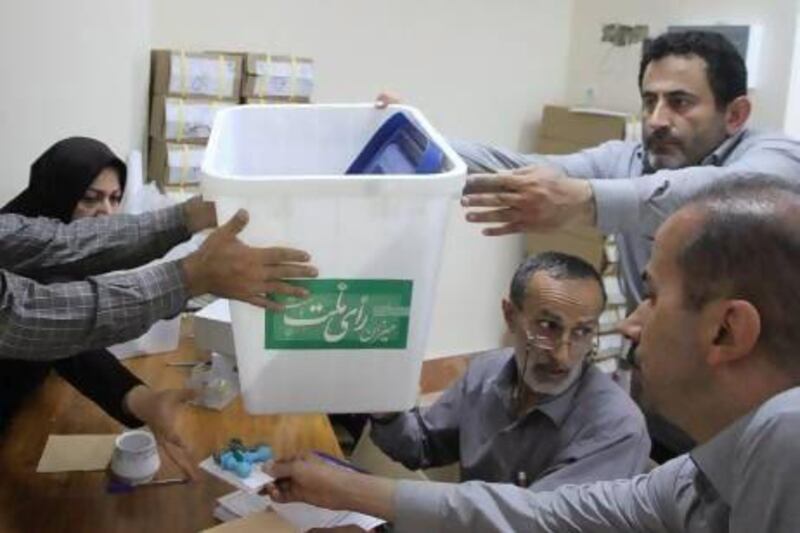Pro-reform leaders in Iran have urged their disenchanted supporters to vote in large numbers in today's presidential election, hoping that the single moderate candidate could yet upset the race that has been dominated by hardliners.
Akbar Hashemi Rafsanjani, a former president who was barred from running, insisted people "should not boycott" the vote. His call was echoed by Mohammad Khatami, a popular reformist former president.
Many middle-class and young Iranians believe the last presidential election in 2009 was rigged to return Mahmoud Ahmadinejad to office and saw little point in voting this time. All but three of the eight candidates allowed to run by a hardline vetting body were conservatives.
But there was a potentially game-changing development this week when the sole reformist candidate dropped out to strengthen the chances of Hassan Rowhani, a centrist politician who served under Mr Rafsanjani and Mr Khatami.
Strongly endorsed by both former presidents, Mr Rowhani is in effect the default candidate for reformists, a liberal-minded cleric who has pledged more freedoms for Iranians and better relations with the West.
As a result he has enjoyed a sudden surge in support, which is likely to alarm Iran's supreme leader, Ayatollah Ali Khamenei, who wanted no surprises in this election after the debacle in 2009.
Mr Ahmadinejad's tainted victory - which the ayatollah backed - ignited the biggest street protests since the 1979 Islamic revolution, badly denting the regime's legitimacy. But, just two years later, Mr Ahmadinejad was challenging the ayatollah's overarching powers.
This time Mr Khamenei wants a pliant and obedient president. He has four loyalists in the race but they have failed to agree on a unity candidate. That could split the conservative vote, leaving Mr Rowhani, a former chief nuclear negotiator, with a strong chance if there is no ballot-rigging, analysts said.
There were large crowds on the streets of the eastern holy city of Mashhad for Mr Rowhani's final election rally on Wednesday night. "It was a huge welcome and unprecedented in Mashhad," one supporter tweeted.
Some Facebook users have changed their profile picture to "I Vote", projecting it against a background of purple, the colour of Mr Rowhani's
campaign. Others have chosen a picture of a key, Mr Rowhani's campaign symbol which symbolises his promise to "unlock the problems" of Iran.
Mr Khamenei has also beseeched voters to turn out in huge numbers, maintaining that a strong show of electoral muscle will "disappoint" Iran's enemies.
The conservative front-runners are Saeed Jalili, Iran's uncompromising nuclear negotiator, Mohammad Baqer Qalibaf, Tehran's generally well-regarded mayor, and Ali Akbar Velayati, a former foreign minister.
Mr Jalili is alone among the six candidates in defending Iran's current robust and ideologically driven foreign policy.
Some middle-class Iranians, while not enthusiastic about any of the candidates, said they may yet vote to try to stop a hardliner such as Mr Jalili getting in.
One wrote on Twitter: "Up to today I had no intention of voting. I couldn't bring myself to, but now to anyone who asks, I will vote for Rowhani."
mtheoudoulou@thenational.ae
* With additional reporting by Agence France-Presse





